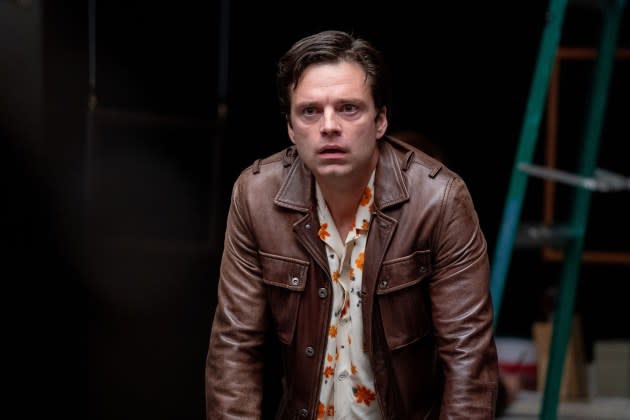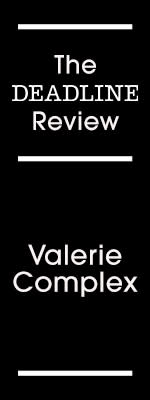‘A Different Man’ Review: A Deeply Imperfect But Well Intentioned Exploration Of Disability And Identity – Sundance Film Festival
- Oops!Something went wrong.Please try again later.
- Oops!Something went wrong.Please try again later.

A Different Man tackles weighty themes of disability, identity and transformation. Directed and written by Aaron Schimberg and starring Sebastian Stan, Renate Reinsve and Adam Pearson, what emerges is a complex portrayal of the clashes between outer perceptions and inner truths. While it makes a valiant effort towards inclusion to express a vital message about appearance and identity, the film’s execution can often feel tonally inconsistent, and overlong.
Edward (Stan) is an aspiring actor with facial deformities (neurofibromatosis, to be exact), that subjects him to ridicule and isolation. Though self-conscious and lonely, Edward finds hope when he befriends Ingrid (Reinsve), his empathetic playwright next-door neighbor. When presented with the possibility of normalcy through a risky reconstructive procedure, Edward pursues the chance to lead a life free from judgment and staring eyes.
More from Deadline

The painful transformation grants him a new face, but Edward soon realizes appearance alone cannot erase his past. His world is turned upside down again with the arrival of Oswald (Pearson), a man afflicted as Edward, now going by a new name, stirring complex feelings of guilt, regret and envy within him. Now he must reconcile his new outer self with the wounded inner self, and determine what and who constitutes his true identity.
Edward’s physical transformation evokes a sense of shedding one identity to embody another. Yet, the real metamorphosis is how Edward must re-conceptualize his place in society. With a new face comes new assumptions, expectations, and opportunities that clash with his inner sense of self. His reptilian-like evolution elicits difficult questions of adaptation: how much of oneself must be sacrificed for acceptance? As he navigates this disconnect between outer appearance and authenticity, he has to determine what constitutes his essential self.
Although Edward believes normalizing his appearance will finally grant him access to respect, belonging and human dignity, his transformation only intensifies his alienation. Oswald, however, embraces his visible difference with confident authority that Edward finds both entrancing and revolting. His newfound handsomeness earns him no greater human connection or self-respect, spotlighting the false equation between appearance and identity. Through Edward’s and Oswald’s differing responses to prejudice, the film suggests our essence should transcend physicality.
Stan tackles the prickly, emotional space of Edward through the physical elements of the character’s change; he conveys that trauma with vulnerability and nuance. Pearson anchors the emotional core of the film with charm, confidence and effortlessness. Oswald underscores the diversity of visible differences while challenging the presumptions viewers may hold.
After hearing Toni Morrison’s The Bluest Eye mentioned several times, I wondered if Schimberg used that story as a framework for the narrative in A Different Man. It’s one of the most banned books in America, so kudos for mentioning the title over and over again throughout the film. However, the way in which those moments are utilized left me uncomfortable. There are several references made in relation to the theme, but the mention of The Bluest Eye is so odd, as it doesn’t fit within this story beyond mentioning it.
Outside of that, A Different Man has a whole host of other issues. Uneven pacing results in drawn-out scenes that lose momentum, while the tonal shifts between psychological drama and thriller-y suspense undermine emotional investment. Whatever substance the film hopes to convey is buried beneath layers of indie clichés, artistic pretension and on-the-nose storytelling that lacks subtly. As is, sitting through this movie in feature length is punishment.
As a message and as an inclusive space, A Different Man exceeds, but as a film, and a narrative? I’ll ask this question: Is the risk worth the reward? For me, no. However, it will be rewarding for others who the narrative speaks to. And in the grand scheme of things, I think that’s what counts most.
Title: A Different Man
Festival (Section): Sundance (Premieres)
Director-Screenwriter: Aaron Schimberg
Cast: Sebastian Stan, Renate Reinsve, Adam Pearson
Distributor: A24
Running time: 1 hr 42 min
Best of Deadline
Sundance Film Festival 2024 Photos: 'Rob Peace' & 'In The Summers' On Day 5
Palm Springs Film Festival: 'The Holdovers' Star Paul Giamatti Set For Icon Award
Sign up for Deadline's Newsletter. For the latest news, follow us on Facebook, Twitter, and Instagram.
